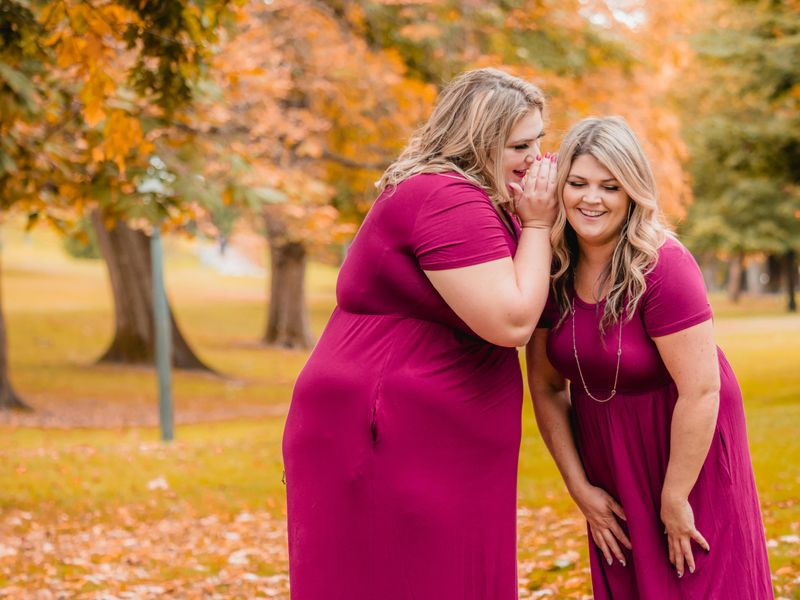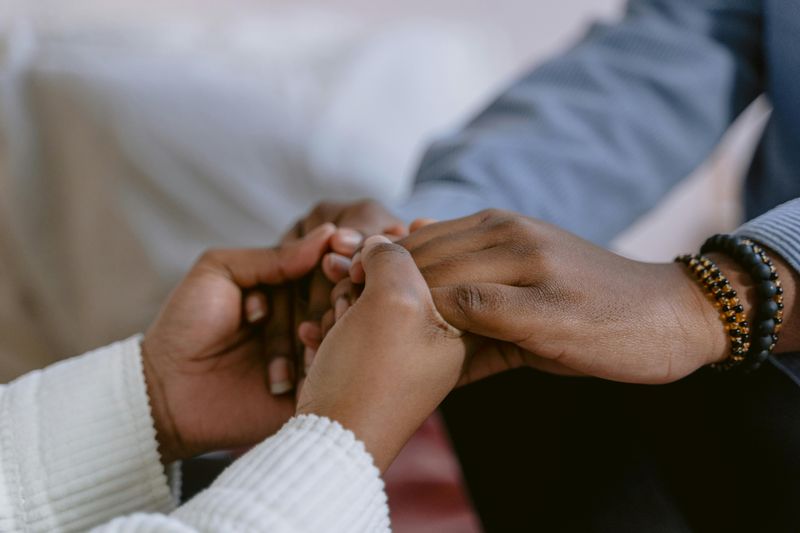15 Signs Your “Friend” Isn’t Actually a Friend

Friendships should make us feel supported, valued, and understood. But sometimes, people we consider friends might not actually have our best interests at heart. Recognizing when someone is more of an acquaintance (or even toxic) than a true friend can save us from unnecessary hurt and disappointment. Here are fifteen warning signs that your so-called friend might not be the real deal.
1. They Only Reach Out When They Need Something

The relationship feels strangely transactional rather than genuine. You notice they pop up with friendly messages right before asking for a favor, money, or emotional support. Then they vanish until the next time they need something.
Real friendships involve give and take, with both people benefiting from the connection. If you’re constantly providing help without receiving anything in return, you’ve become more of a resource than a friend.
Think about the last five times they contacted you – was there a request attached to each one? This pattern reveals someone who views you as useful rather than valuable for who you are.
2. Conversations Feel One-Sided

You’ve just spent an hour listening to their latest drama, offering support and advice. When you finally bring up your own struggles, they glance at their phone, change the subject, or suddenly remember an appointment.
Healthy friendships feature balanced conversations where both people get to share and be heard. Your stories and feelings deserve just as much airtime as theirs. The emotional labor in the friendship shouldn’t fall mostly on your shoulders.
After hanging out with them, you often realize you know everything about their life while they could barely name what’s important to you right now. This imbalance speaks volumes about how they view the friendship.
3. They Disappear During Tough Times

When life was easy and fun, they were always around for parties and good times. But the moment you lost your job, went through a breakup, or faced family problems, they became surprisingly busy or distant.
True friends show up when the going gets rough – that’s actually when you need them most. Someone who only wants to be part of your highlight reel but not your struggles isn’t really invested in you as a person.
Notice who checks in during your hardest moments versus who seems to conveniently disappear. The contrast between fair-weather friends and genuine ones becomes crystal clear during life’s storms.
4. They Downplay Your Successes

You finally got that promotion you worked so hard for! Instead of genuine congratulations, they respond with “Oh, I guess they must have been desperate for someone” or quickly change the subject to their own achievements.
A true friend celebrates your wins as if they were their own. They know your success doesn’t diminish theirs. When someone consistently minimizes your accomplishments or finds ways to one-up you, they’re showing discomfort with your happiness.
Pay attention to their first reaction when you share good news. Do they seem genuinely happy, or do they immediately look for ways to rain on your parade? Their instinctive response reveals how they truly feel about your success.
5. They Gossip About You

Finding out your personal struggles are now common knowledge among mutual friends feels like a betrayal. When you shared that embarrassing story or private concern, you trusted it would stay between the two of you.
Respect forms the foundation of real friendship. Someone who readily shares your secrets with others shows a fundamental lack of respect for your privacy and trust. The realization that you can’t speak freely without worrying about who else will hear it creates a permanent barrier.
Watch how they talk about their other friends when they’re not around. If they freely share others’ secrets with you, chances are your information isn’t safe with them either. This pattern reveals someone who values interesting conversation over loyalty.
6. They’re Competitive Instead of Supportive

Every conversation somehow turns into a competition. If you ran a 5K, they’ve run a marathon. If you got a promotion, they were offered an even better position but turned it down. Their need to one-up you never seems to rest.
Friendship should feel like you’re on the same team, not opponents. Someone who constantly competes with you views your relationship as a rivalry rather than a partnership. This exhausting dynamic prevents the vulnerability and mutual support that makes friendship meaningful.
Notice how you feel after sharing accomplishments with them. Do you leave feeling deflated rather than celebrated? That’s your instinct warning you that something isn’t right in how they respond to your successes.
7. They Never Apologize

Everyone makes mistakes, but this person seems incapable of admitting when they’re wrong. After hurting your feelings, they either pretend nothing happened or somehow twist the situation to make it your fault.
The ability to apologize shows emotional maturity and respect for others’ feelings. When someone consistently refuses to acknowledge their mistakes, they’re showing they value their ego more than your relationship. This creates a power imbalance where your feelings are always less important than theirs.
Think about past conflicts – have they ever genuinely said “I’m sorry” without adding justifications or blame? Their pattern of response to conflict reveals whether they see you as an equal worthy of respect.
8. They Mock or Undermine You

“I was just joking!” they say after making a cutting remark about your appearance, intelligence, or dreams. These jabs happen so often that you’ve started second-guessing yourself or avoiding certain topics around them.
True friends build you up, not tear you down. While gentle teasing can be part of friendship, there’s a clear line between playful banter and hurtful mockery. Someone who regularly crosses this line may be trying to keep you down to feel better about themselves.
Consider how their “jokes” make you feel. If you consistently feel smaller, less confident, or embarrassed after spending time with them, your instincts are telling you something important about the nature of your relationship.
9. They Don’t Respect Boundaries

You’ve clearly stated you don’t want to discuss certain topics or participate in specific activities. Yet they persistently bring up those exact subjects or pressure you into those situations, dismissing your discomfort.
Healthy friendships include mutual respect for each other’s limits and comfort zones. Someone who repeatedly ignores your boundaries is demonstrating they don’t truly value your feelings or autonomy. This disregard often extends beyond the specific boundary to a general attitude about your needs.
Reflect on how they respond when you say “no” to something. Do they accept it gracefully, or do they push, guilt-trip, or ignore your decision? Their reaction reveals whether they see you as an independent person or merely an extension of their own wishes.
10. They Flake on Plans Constantly

Thirty minutes before meeting time, the familiar text arrives: “Sorry, can’t make it today.” This isn’t a rare occurrence – it’s become their standard operating procedure.
Reliability forms a cornerstone of trust in friendships. When someone consistently cancels or shows up extremely late, they’re showing your time isn’t valuable to them. Occasional emergencies happen to everyone, but a pattern of flakiness reveals where you stand in their priorities.
Count how many times they’ve actually followed through on plans versus canceled in the last few months. The numbers don’t lie and can help you see whether this person deserves continued opportunities in your schedule.
11. They’re Jealous of Other Friendships

Mentioning other friends around them creates an immediate mood shift. They make snide remarks about your other relationships or try to convince you those people aren’t good for you.
Healthy friendships allow space for other connections in your life. Someone who tries to isolate you or reacts negatively to your other relationships may be possessive rather than caring. True friends understand that having a diverse social circle makes your life richer, not threatens their position.
Notice their reaction when you mention plans with others. Do they seem supportive or subtly disapproving? A friend who truly cares about your happiness will be glad you have many sources of support and joy in your life.
12. They Only Celebrate Their Own Wins

When they achieve something, you’re expected to show up with congratulations, gifts, and enthusiastic support. Yet when your moment arrives, they’re strangely subdued or completely absent.
Friendship should feature mutual celebration and support flowing in both directions. Someone who expects your full attention for their achievements but can’t reciprocate is showing a fundamental selfishness. This one-way dynamic reveals they see the friendship primarily in terms of what they receive.
Compare their reaction to your good news versus how they expect you to respond to theirs. The contrast often highlights whether they truly value your happiness or just your role as their personal cheerleader.
13. They Put You Down in Front of Others

“Don’t mind her, she’s always like this,” they say after you’ve shared an opinion at a group gathering. These public put-downs disguised as jokes or explanations leave you feeling embarrassed and undermined.
A real friend builds you up in front of others, not tears you down. They highlight your strengths and have your back in social situations. Someone who uses group settings to embarrass you may be trying to establish dominance or make themselves look better at your expense.
Pay attention to how they speak about you when others are around versus in private. A dramatic difference suggests they’re using your friendship as a prop for their social image rather than valuing you as a person.
14. They Don’t Make an Effort

Scrolling through your text history reveals a stark pattern: you always initiate conversations. If you stopped reaching out, weeks or months might pass before they noticed your absence.
Friendship requires mutual effort to stay connected. When you’re consistently the one making plans, checking in, and keeping the relationship alive, you’re doing all the emotional work. A balanced friendship involves both people showing they value the connection through their actions.
Try an experiment: wait to see how long it takes them to reach out first. The results often clarify whether they actively want you in their life or just respond when convenient. Friendships need reciprocal energy to thrive, not one person carrying the full weight.
15. They Drain Your Energy

After spending time with them, you feel exhausted rather than energized. You find yourself dreading their calls or needing recovery time after your interactions.
Healthy friendships generally leave you feeling better than before – understood, appreciated, and recharged. Someone who consistently drains your emotional resources may be taking more than they give. This energy imbalance creates a subtle but persistent sense of dread around the relationship.
Notice your body’s reaction when you see their name on your phone. Do you feel a sense of heaviness or obligation rather than excitement? Your physical response offers honest insight into how this relationship truly affects your wellbeing.

Comments
Loading…